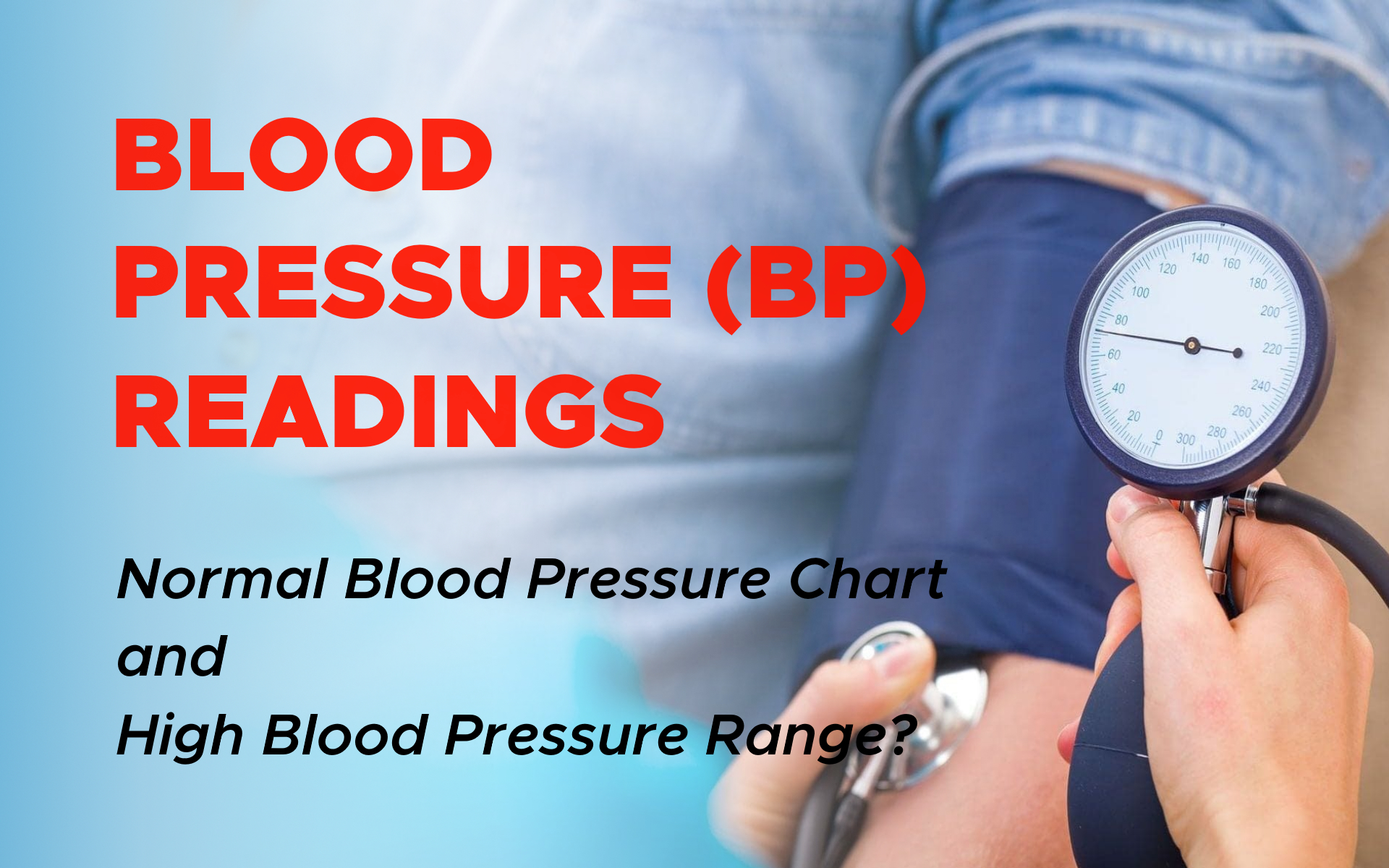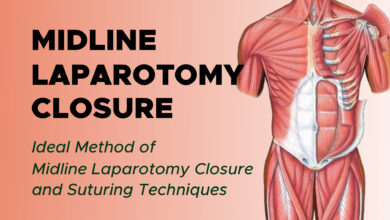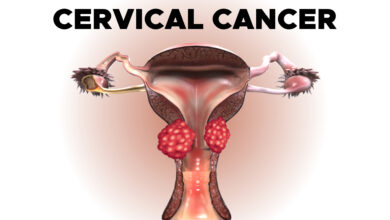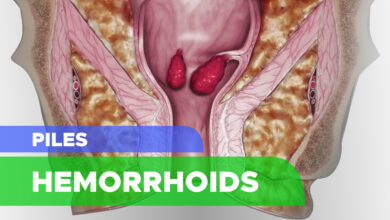
Understanding Blood Pressure (BP) Readings: What is the High Blood Pressure Range?
Normal Blood Pressure Chart and Meaning of Systolic Blood Pressure and Diastolic Blood Pressure.
What Do Your Blood Pressure Numbers Mean?
Blood pressure is a measure of the force that your heart uses to pump blood around your body. The only way to know if you have high blood pressure (HBP, or hypertension) is to have your blood pressure tested. Understanding your results is key to controlling high blood pressure.
How is Blood Pressure Measured?
Blood pressure is measured in millimetres of mercury (mmHg) and is given as 2 figures:
1. Systolic blood pressure (the first number) – indicates how much pressure your blood is exerting against your artery walls when the heart beats.
2. Diastolic blood pressure (the second number) – indicates how much pressure your blood is exerting against your artery walls while the heart is resting between beats.
For example, if your blood pressure is “140 over 90” or 140/90mmHg, it means you have a systolic pressure of 140mmHg and a diastolic pressure of 90mmHg.
Which Number is More Important?
Typically, more attention is given to systolic blood pressure (the first number) as a major risk factor for cardiovascular disease for people over 50.

In most people, systolic blood pressure rises steadily with age due to the increasing stiffness of large arteries, long-term buildup of plaque and an increased incidence of cardiac and vascular disease.
However, either an elevated systolic or an elevated diastolic blood pressure reading may be used to make a diagnosis of high blood pressure. According to recent studies, the risk of death from ischemic heart disease.
Why Blood Pressure is Measured in mmHg?
The abbreviation mmHg means millimeters of mercury. Mercury was used in the first accurate pressure gauges and is still used in medicine today as the standard unit of measurement for pressure.
Taking your pulse versus checking your blood pressure. While both are indications of health, blood pressure and heart rate (pulse) are two separate measurements.
Blood Pressure Chart (Healthy and Unhealthy Ranges)
As a general guide:
- Ideal blood pressure is considered to be between 90/60mmHg and 120/80mmHg
- High blood pressure is considered to be 140/90mmHg or higher
- Low blood pressure is considered to be 90/60mmHg or lower
High blood pressure is often related to unhealthy lifestyle habits, such as smoking, drinking too much alcohol, being overweight and not exercising enough.
Left untreated, high blood pressure can increase your risk of developing a number of serious long-term health conditions, such as coronary heart disease and kidney disease.
Low blood pressure is less common. Some medicines can cause low blood pressure as a side effect. It can also be caused by a number of underlying conditions, including heart failure and dehydration.
Blood Pressure Categories
The five blood pressure ranges as recognized by the American Heart Association are:
1. Normal
Blood pressure numbers of less than 120/80 mm Hg are considered within the normal range. If your results fall into this category, stick with heart-healthy habits like following a balanced diet and getting regular exercise.
2. Elevated
Elevated blood pressure is when readings consistently range from 120-129 systolic and less than 80 mm Hg diastolic. People with elevated blood pressure are likely to develop high blood pressure unless steps are taken to control the condition.
3. Hypertension Stage 1
Hypertension Stage 1 is when blood pressure consistently ranges from 130-139 systolic or 80-89 mm Hg diastolic. At this stage of high blood pressure, doctors are likely to prescribe lifestyle changes and may consider adding blood pressure medication based on your risk of atherosclerotic cardiovascular disease (ASCVD), such as heart attack or stroke.
4. Hypertension Stage 2
Hypertension Stage 2 is when blood pressure consistently ranges at 140/90 mm Hg or higher. At this stage of high blood pressure, doctors are likely to prescribe a combination of blood pressure medications and lifestyle changes.
5. Hypertensive Crisis
This stage of high blood pressure requires medical attention. If your blood pressure readings suddenly exceed 180/120 mm Hg, wait five minutes and then test your blood pressure again.
If your readings are still unusually high, contact your doctor immediately. You could be experiencing a hypertensive crisis.
If your blood pressure is higher than 180/120 mm Hg and you are experiencing signs of possible organ damage such as chest pain, shortness of breath, back pain, numbness/weakness, change in vision or difficulty speaking, do not wait to see if your pressure comes down on its own. Call emergency services or your doctor.
What are the Signs and Symptoms of High Blood Pressure?
High blood pressure usually has no warning signs or symptoms, and many people do not know they have it. Measuring your blood pressure is the only way to know whether you have high blood pressure.
What Causes High Blood Pressure?
High blood pressure usually develops over time. It can happen because of unhealthy lifestyle choices, such as not getting enough regular physical activity.
Certain health conditions, such as diabetes and having obesity, can also increase the risk for developing high blood pressure. High blood pressure can also happen during pregnancy.
What Problems Does High Blood Pressure Cause?
High blood pressure can damage your health in many ways. It can seriously hurt important organs like your heart, brain, kidneys, and eyes.
The good news is that, in most cases, you can manage your blood pressure to lower your risk for serious health problems.
1. Heart Attack and Heart Disease
High blood pressure can damage your arteries by making them less elastic, which decreases the flow of blood and oxygen to your heart and leads to heart disease. In addition, decreased blood flow to the heart can cause:

- Chest pain, also called angina.
- Heart attack, which happens when the blood supply to your heart is blocked and heart muscle begins to die without enough oxygen. The longer the blood flow is blocked, the greater the damage to the heart.
- Heart failure, a condition that means your heart can’t pump enough blood and oxygen to your other organs.
2. Stroke and Brain Problems
High blood pressure can cause the arteries that supply blood and oxygen to the brain to burst or be blocked, causing a stroke.
Brain cells die during a stroke because they do not get enough oxygen. Stroke can cause serious disabilities in speech, movement, and other basic activities. A stroke can also kill you.
Having high blood pressure, especially in midlife, is linked to having poorer cognitive function and dementia later in life. Learn more about the link between high blood pressure and dementia from the National Institutes of Health’s Mind Your Risks®external icon campaign.
3. Kidney Disease
Adults with diabetes, high blood pressure, or both have a higher risk of developing chronic kidney disease than those without these conditions.
How Do I Know if I Have High Blood Pressure?
There’s only one way to know if you have high blood pressure: Have a doctor or other health professional measure it. Measuring your blood pressure is quick and painless.
Talk with your health care team about regularly measuring your blood pressure at home, also called self-measured blood pressure (SMBP) monitoring.
High blood pressure is called the “silent killer” because it usually has no warning signs or symptoms, and many people do not know they have it.
What Can I Do to Prevent or Manage High Blood Pressure?
Many people with high blood pressure can lower their blood pressure into a healthy range or keep their numbers in a healthy range by making lifestyle changes. Talk with your health care team about
- Getting at least 150 minutes of physical activity each week (about 30 minutes a day, 5 days a week)
- Not smoking
- Eating a healthy diet, including limiting sodium (salt) and alcohol
- Keeping a healthy weight
- Managing stress
Learn more about ways to manage and prevent high blood pressure. In addition to making positive lifestyle changes, some people with high blood pressure need to take medicine to manage their blood pressure.
Talk with your health care team right away if you think you have high blood pressure or if you’ve been told you have high blood pressure but do not have it under control.
By taking action to lower your blood pressure, you can help protect yourself against heart disease and stroke, also sometimes called cardiovascular disease (CVD).



